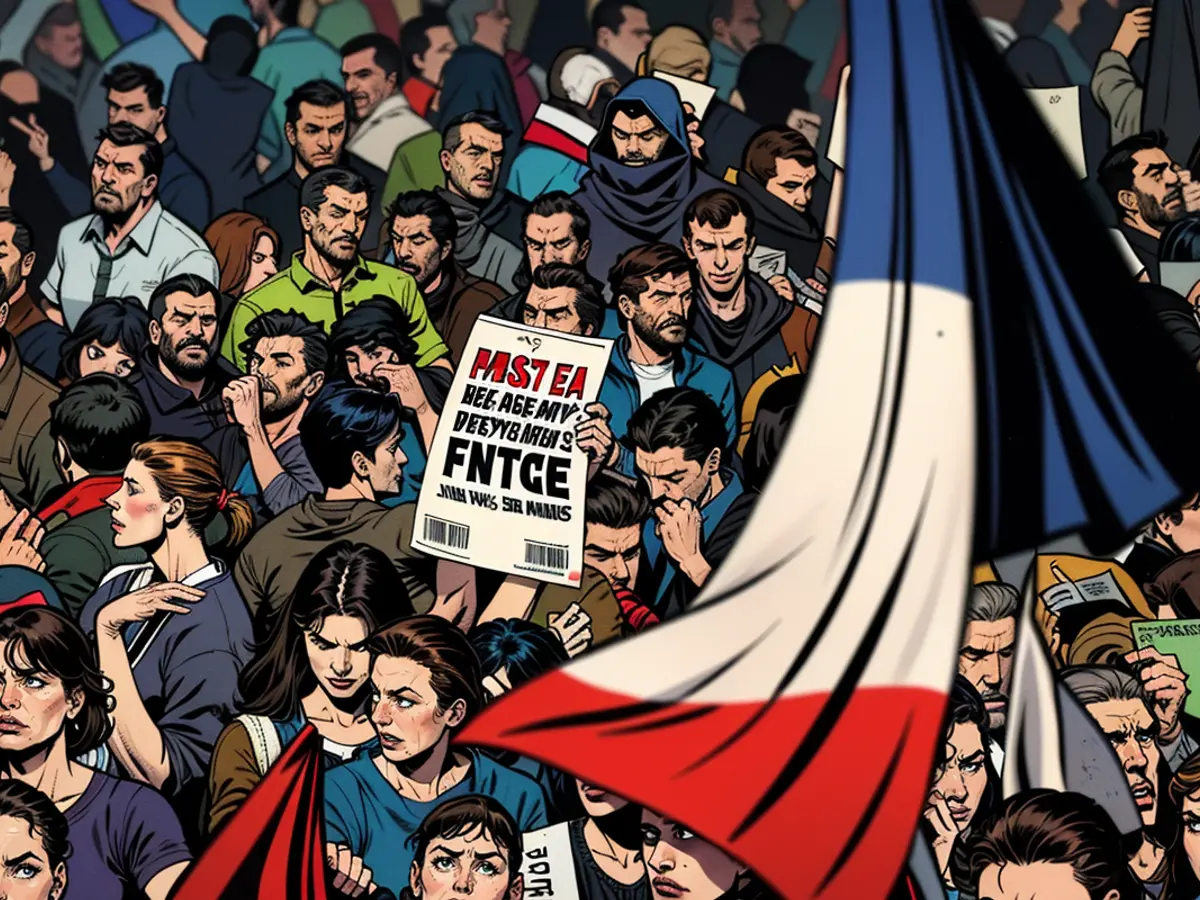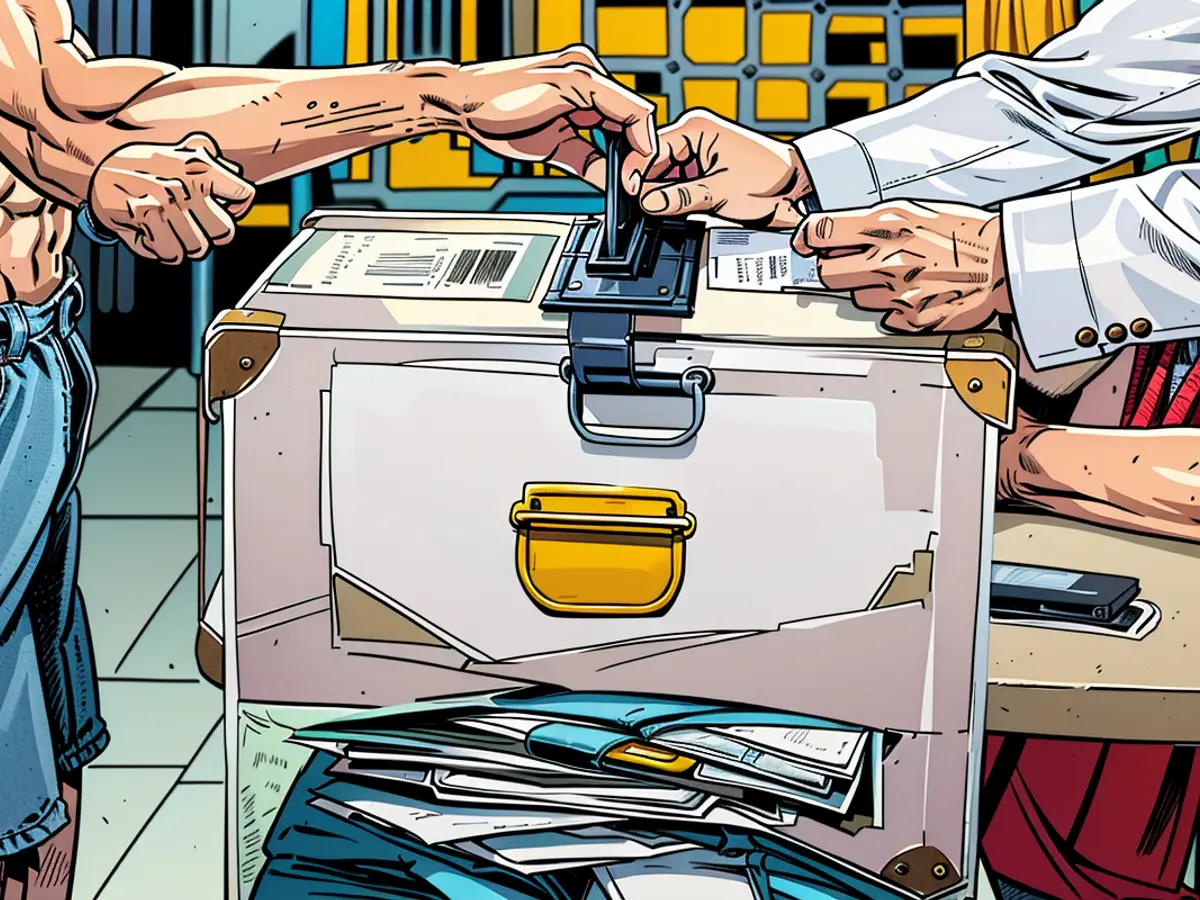Hundreds of candidates drop out of French election runoff in last gasp bid to keep far right from power
Over 200 candidates from President Emmanuel Macron’s centrist camp and the left-wing alliance have stepped down in a bid to avoid splitting the vote. They’ve put aside their differences with one goal in mind: to keep the far right firmly away from the 289 seats required for an absolute majority currently within their reach.
Last Sunday the French people placed the anti-immigration National Rally (RN) and its allies in first place while Macron’s centrist camp came third, behind the left-wing bloc.
After the first round in constituencies where no candidate won outright, an unprecedented number of seats – over 300 - went to a three-way run-off favoring the RN. By Tuesday, as the deadline to drop out closed, fewer than 100 remain, after centrist and left-wing candidates strategically dropped out in individual seats.
This tactic could stop some RN candidates from winning, according to analyst Antoine Bristielle.

“The main probability was an absolute majority for the National Rally, but now with all of the withdrawals, I think that’s unlikely,” Bristielle said.
In an attempt to deny the RN a majority, the NFP – a left-wing coalition that wants to lower the retirement age and tax the rich – promised to withdraw all of its candidates who came in third place in the first round.
Leslie Mortreux, an NFP qualifier and the only publicly out transgender runner, stepped aside to give right-wing Interior Minister Gérald Darmanin a better chance of defeating the RN rival in a constituency in the north.
Macron’s Ensemble allies also called on their supporters to prevent the far right taking office, but some warned against lending their votes to the hard-left France Unbowed, a party inside the NFP.
Finance Minister Bruno Le Maire drew the ire of the left on Tuesday when he said no vote should go to the far right but added that he personally would not vote for the far left either.
In one constituency in the south, a government minister initially refused to help an NFP candidate, reasoning that she didn’t want her voters to have to choose between two extremes.
The following day she tweeted that she was bowing out following pressure from the president and prime minister.
In over 80 three-way races, Macron’s centrist candidates dropped out in favor of candidates from the left-wing NFP. But many stopped short of encouraging their supporters to vote for a left-wing opponent.
“I’ve taken the difficult decision to withdraw ... leaving it up to my voters to position themselves against the far right or far left,” Samuel Deguara, a candidate from Macron’s camp said after withdrawing.
Meanwhile, far-right doyenne Marine Le Pen condemned the political bargaining.
“The act of withdrawing and giving voting instructions shows the worst contempt for voters,” Le Pen said Tuesday.

Even before the candidate withdrawals, projections had suggested that after the second round of voting next Sunday, the RN was likely to fall short of an absolute majority and win between 230 and 280 seats in the 577-seat lower house.
In speeches before the first round, National Rally leader Jordan Bardella said he would refuse to govern a minority government, in which the RN would require the votes of allies to pass laws.
If the RN falls short of an absolute majority and Bardella stays true to his word, Macron might then have to search for a prime minister on the left, or somewhere else entirely.
And if the unthinkable for Macron happens and the RN does get an absolute majority, then it will become the first far-right party to enter the French government since World War II.
In the current political landscape, the far-right National Rally (RN) and its allies currently lead, while President Emmanuel Macron's camp is second. However, many centrist and left-wing candidates have withdrawn from the race to prevent the RN from achieving an absolute majority in the French parliament, which currently stands within their reach in the 289 seat requirement.
Furthermore, the political strategy in Europe, specifically in France, involves various political alliances trying to deny the far-right RN a majority, as they perceive it as a threat to their ideologies and values.







